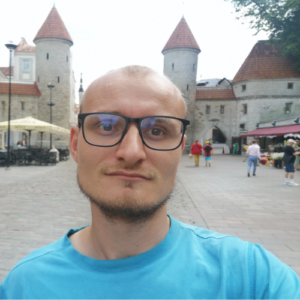Methods for detection and evaluation of neologisms for the Croatian language
Denis Gaščić is an ambitious computer and language enthusiast with a strong interest in Neologisms from the Faculty of Humanities and Social Sciences of the University of Zagreb (FFZG). Hence, he applied for a research grant to visit the Institute of the Estonian Language (EKI) in order to be introduced to tools and methods used for dictionary compilation and automatic detection of neologisms.
How did you learn about the ELEXIS travel grants?
I was a MA student of information science at the Faculty of Humanities and Social Sciences at the University of Zagreb when Call 4 was announced. My professor Kristina Kocijan sent me the call, so I decided to apply because I am interested in natural language processing and e-lexicography
© by Denis Gaščić, 2022
Find out more about ELEXIS visiting grants:
What is your project about?
The purpose of my visit is to obtain an overview of
1. methods and tools for detecting and evaluating neologisms;
2. Estonian resources (corpora, lexical resources) and tools used for (semi-)automatic detection of neologisms;
3. Croatian resources (corpora, lexical resources) and tools that can be used or are used for (semi-)automatic detection and evaluation of neologisms.
During the visit, I also plan to define a theme and write a research proposal for my PhD thesis, probably in the field of neology.
“I hope I will be able to develop algorithms for the automatic detection of neologisms for Croatian.”
What is your background that brought you up to this point?
I am holding a MA in information science, but I would say that I am a computer and language enthusiast who tries every day to learn some new things and acquire new skills.
Which hosting institution did you apply to and why?
The hosting institution, Institute for the Estonian Language, is focused on modern automated lexicography, so they can introduce me methods and tools (DWS-s and CQS-s) they use for dictionary compilation and automatic detection of neologisms. They can also teach me how to use them and implement them in the research of the Croatian language.
Where does your interest in languages/lexicography come from and what keeps you motivated?
I was always interested in creating new words (two of them were chosen for the final competition for new Croatian words). I am also interested in the whole lifecycle of neologisms. My area of interest also includes the field of machine translation, speech recognition, spell checking, diachronic analysis and automated detection of neologisms.
I hope I will be able to develop algorithms for the automatic detection of neologisms for Croatian. My primary motivation is improving and developing NLP applications for modern Croatian and their practical implementation in tools and apps.
| Profile: Denis Gaščić | ||
| Travel Grant | Call 4 | |
| Period of stay |
12. – 26.6.2022 |
|
| Project title |
Methods for detection and evaluation of neologism for the Croatian language |
|
| Home institution |
Faculty of Humanities and Social Sciences, Zagreb |
#elexis_hr |
| Hosting institution | Insitute of the Estonian Language (EKI, Estonia) |
#elexis_ee |





